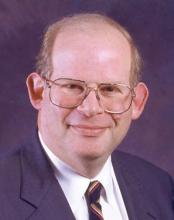Parents want to raise their children to be happy and successful in childhood and through adulthood. For many parents, this means giving their children as many opportunities to learn, practice, and master a wide variety of skills outside of school as they possibly can. These activities often include the study of a musical instrument, a sport, an activity in the arts, religious study, and even extra academic work such as math, computer science, or a second language. Each one of these activities can mean many classes or practices outside of the home each week and additional practice time at home.
When you combine these activities with school and homework, children can be busier than most professional adults. And their parents can feel like managing their child’s schedule is another full-time job. By asking parents how many afternoons and evenings are scheduled (or how many hours of down time their children have) each week, you begin a conversation that may help parents determine the right balance for each child and the family.
Without a doubt, there can be tremendous value in making time for extracurricular activities for children. School alone usually does not offer much exposure to music education and the arts, and a daily gym class is sadly a thing of the past for most children. There is a growing body of evidence that daily vigorous exercise in childhood not only promotes good physical health and restorative sleep, and fights obesity, but that it also promotes strong cognitive development and can prevent anxiety and mood symptoms. Sustained experience with a team sport cultivates discipline, frustration tolerance, and resilience alongside friendships and fun. Likewise, there is a growing body of evidence that learning to play a musical instrument contributes in broader ways to healthy cognitive development, cultivates discipline and frustration tolerance, and improves executive function and the attention and self-regulation skills that all school-age children need to develop. Exposure to the arts, to trade skills, or to rare languages may help children discover a unique interest or passion that will draw them through their adolescence. Discovering an area of passionate interest is one of the essential goals of childhood; it can help teens feel good about themselves, and is especially meaningful in children who may not be gaining a lot of self-esteem in other areas, such as schoolwork.
But the well-meant intentions of parents (or interests of children) sometimes can lead to so many extracurricular activities that children barely have time for homework, play, or relaxation. From kindergarten through middle school, children are at the perfect age to be exploring multiple activities as they learn about their own abilities, strengths, and interests. But it is a developmental period in which there also should be plenty of open, free creative play, often with a social component. This is where children not only learn about their own talents, but also try things they might fail at, developing their curiosity, social skills, self-awareness, and resilience. While it can be wonderful to have a weekly music lesson and a team sport at this age, it is critical that there also be protected free play or down time. During this developmental period, children may switch sports, instruments, or hobbies, and it is healthy that they have the time and space to do so. Parents will say that every hour of activity is "fun." But fun with a purpose is different from "senseless fun," which is just fun without an achievement goal. Adults may have "fun" working out, but also have senseless fun playing golf, having a drink with friends, or going to a movie.
Adolescents are more likely to be "pruning" their interests as they figure out where their passions lie. Teenagers may do fewer activities overall, but spend more time on each of them. Of course, many teens will be experiencing great pressure (internal, external or both) to build the strongest possible college applications with the "right" mix of extracurricular activities, which may not line up with their actual interests. They will face the pressure also to be performing at a very high level academically. Some may have jobs, as they seek to build independence. Then add to this the fact that many will be driving themselves to each activity and wanting to spend time with friends and romantic interests, and you have a recipe for adolescents whose every moment is accounted for, to the point that they may skimp on sleep and mealtimes and feel overwhelmed. In choosing how to manage their schedules, adolescents also should be learning about the value of self-care, protecting time to relax, exercise, and sleep adequately (with a good measure of senseless fun texting as they build their identity).



